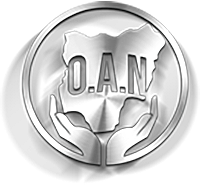Some facts about Nigeria you may not know
Nigeria, a land of profound diversity and rich heritage, stands out as a prominent African country for numerous reasons. Named after the River Niger, this federal constitutional republic is carved into thirty-six states alongside one Federal Capital Territory, with Abuja as its capital. It occupies a strategic position in Western Africa, bordered by the Republic of Benin, Chad, Cameroon, and Niger, with its southern boundary lying along the Gulf of Guinea, part of the Atlantic Ocean.
The linguistic diversity in Nigeria is unparalleled; it’s a melting pot of about 521 languages, of which 510 are still in use today. This makes Nigeria home to seven percent of the world’s total languages, underscoring its cultural richness and the significance of its linguistic heritage.
The demographic makeup of Nigeria shows a near-even split between Muslims (50.4%) and Christians (48.2%), with a small percentage (1.4%) practicing other religions. This religious diversity reflects the country’s multifaceted identity and the coexistence of different faith communities.
Nigeria’s global significance is also marked by its population, being the most populous country in Africa and the eighth largest worldwide. The discovery of oil in 1956 at Oloibiri (Bayelsa State) heralded Nigeria’s emergence as a critical player in the global petroleum sector, ranking as the 12th largest producer and the 8th largest exporter of petroleum. Furthermore, Nigeria holds the record for the highest rate of twin births globally, adding a unique demographic characteristic to its profile.
Education is a priority, with Ogun State boasting the highest number of universities in the country, highlighting Nigeria’s commitment to academic excellence and development. The historical and architectural marvel of the Walls of Benin, dating back to between 800 and 1400 AD, represents the world’s longest ancient earthworks, emphasizing Nigeria’s rich historical legacy.
Nigeria’s biodiversity is remarkable, being a sanctuary for species not found anywhere else. This includes the vast diversity of butterflies near Calabar, unique bird species like the Jos Plateau Indigobird and the Anambra waxbill, and the drill monkey, indigenous to Southeast Nigeria and neighboring Cameroon.
Symbolically, Nigeria’s Coat of Arms and Flag embodies the nation’s values and aspirations. The Coat of Arms features a red eagle for strength, a black shield representing the fertile earth, and a Y-shaped band symbolizing the meeting of the Niger and Benue rivers, with two white horses for dignity. The flag, with its green stripes, celebrates Nigeria’s agricultural prowess, and the white stripe symbolizes peace and unity, echoing the Niger River’s significance.
Nigeria’s narrative is a compelling tapestry of cultural, linguistic, and natural diversity, enriched by historical depth and a vibrant community spirit. Its contributions to global culture, economy, and biodiversity make it a unique and invaluable part of our world heritage.



